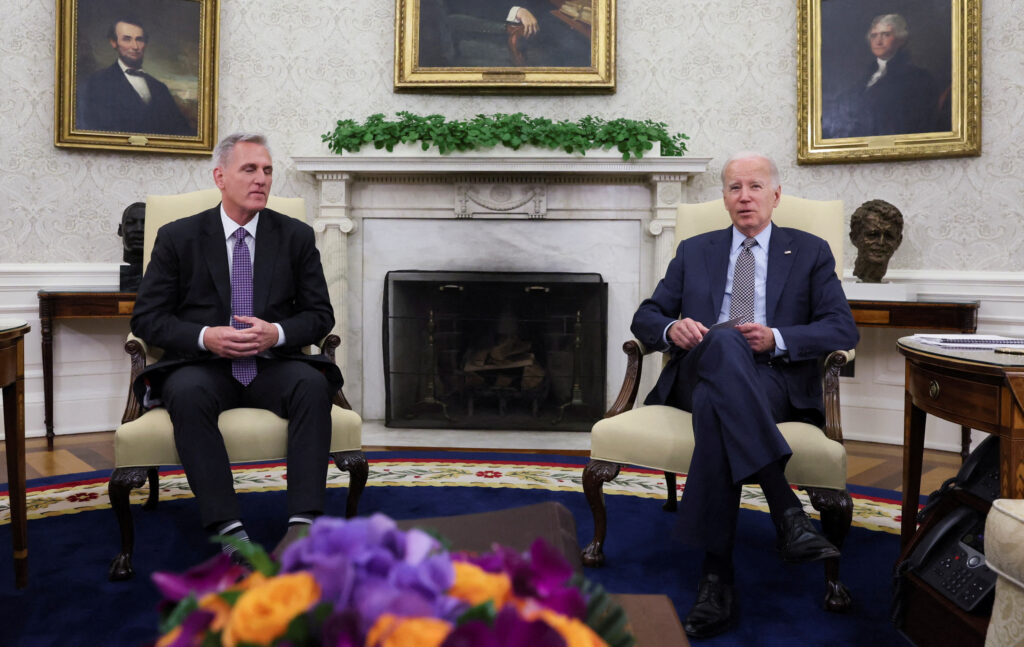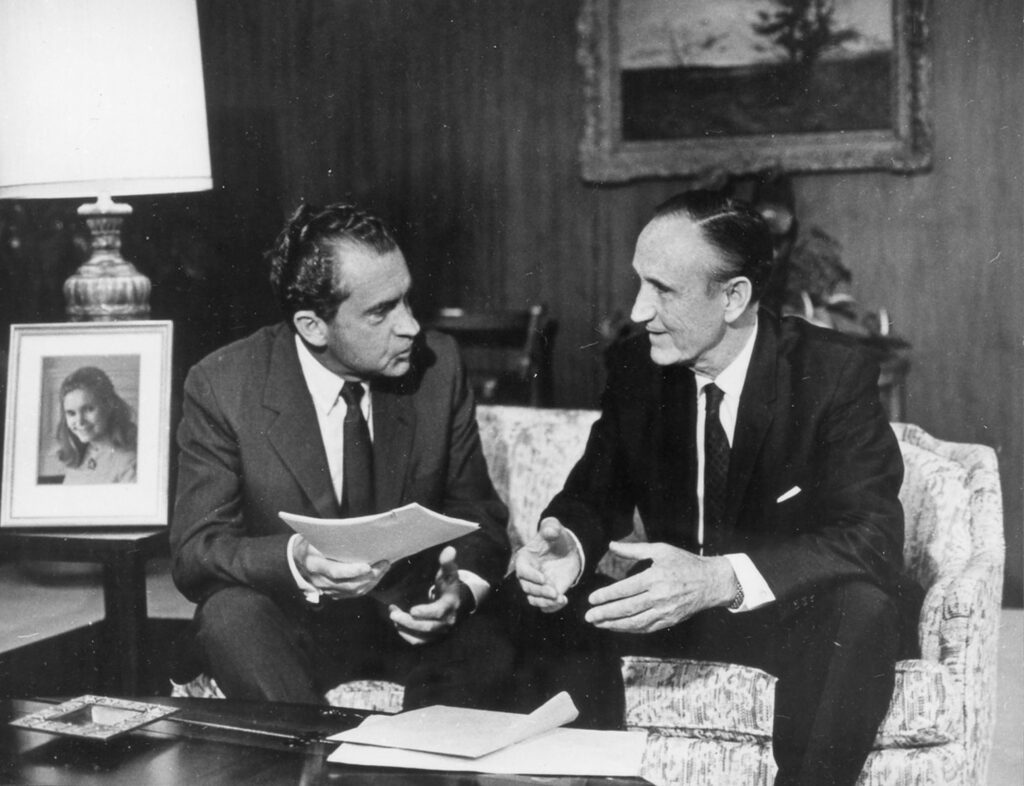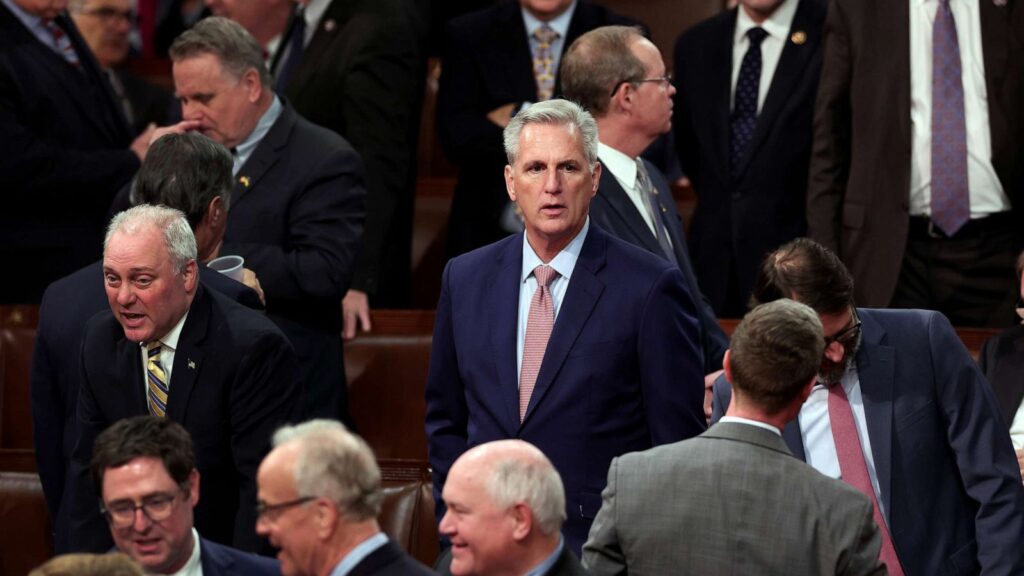It’s not for nothing that the best biography of Mitch McConnell, the Kentucky senator who recently announced the end of his long run as Senate Republican leader, is titled The Cynic.
There may have been more destructive personalities in the Senate’s long history — John C. Calhoun prior to the Civil War or Joseph McCarthy in the early 1950s — but it’s hard to think of a single American legislator who has contributed more than McConnell to the despair so many voters feel about their government.
Cynic to the end, McConnell went out with the same disdain of sincerity and good faith that marked the arc of his long political life. That life took him, as The Cynic author Alec MacGillis tells us in his biography, from being a moderate Republican supporting abortion rights and public employee unions to the GOP leader who viciously — and correctly — lashed former President Donald Trump to the crimes on Jan. 6, 2021, and then pivoted cynically to endorse the man the entire world knows he detests.

McConnell once said of Trump: “His behavior during and after the chaos (of January 6) was … unconscionable, from attacking Vice President Mike Pence during the riot to praising the criminals after it ended.”
McConnell’s Senate speech after Jan. 6 detailed the very definition of insurrection, he even called what happened an insurrection. “Fellow Americans beat and bloodied our own police. They stormed the Senate floor. They tried to hunt down the speaker of the House. They built a gallows and chanted about murdering the vice president. They did this because they had been fed wild falsehoods by the most powerful man on Earth because he was angry he lost an election. Former President Trump’s actions preceding the riot were a disgraceful, disgraceful dereliction of duty.”
In response, Trump used racist language to disparage McConnell’s Taiwan-born wife, Elaine Chao, went years without speaking to McConnell and regularly referred to him as an “old broken down crow,” “a piece of shit” and a “dumb son of a bitch.”
McConnell knows better than almost anyone what a reprehensible, incompetent, Constitution-crashing boob the former president is. His wife resigned from Trump’s Cabinet in protest after Jan. 6. Yet none of that matters to McConnell or, in Trump’s telling, his “China loving wife.”
The Associated Press called the Trump endorsement “a remarkable turnaround” by McConnell. But that’s not the correct term. Everyone knew the level of crassness McConnell would eventually employ. Everyone knows a cynic doesn’t change. Power, partisanship and personal self-interest are the cynic’s only motivations.
“I love the Senate. It has been my life,” McConnell said as he announced that he will step down from leadership at the end of the year. “There may be more distinguished members of this body throughout our history, but I doubt there are any with more admiration for it.”
What’s the saying? You always hurt the one you love.
McConnell’s professed admiration for the Senate as an institution is in reality just window dressing for his cynical use of raw partisan power to corrode — even destroy — the fabric of an institution that by its very nature demands compromise, consensus and comity.
McConnell’s one historic accomplishment, securing his place in the history books, has been to weld in place for a generation or more a hard rightwing Supreme Court populated with activist judges who, as Republicans have so long accused Democrats of doing, use their positions to make partisan political decisions. The Supreme Court has become so extremely political that its recent decision ruling that Colorado could not unilaterally remove Trump from that state’s presidential ballot was followed by days of analysis about what the McConnell Court really had said with its ruling.
One thing Mitch’s judges did not touch in that Colorado ruling is the real point of the 14th Amendment case brought against Trump by Colorado voters — namely, did he foment an insurrection? You may have missed it in the coverage of the McConnell Court’s ruling, but a Colorado court actually considered the insurrection question, heard from witnesses, examined what happened on Jan. 6 and concluded — yes, Trump is an insurrectionist.
McConnell’s contribution to American political life also includes, lest we forget, the single most cynical act involving a Supreme Court nominee in the nation’s history. That would be McConnell’s blocking of Barack Obama’s nomination in 2016 of a moderate and highly respected jurist, Merrick Garland, who was denied a hearing on his merits in McConnell’s beloved Senate.
The upshot of that truly historic and indefensible use of partisan power surely means that no future Democratic president will ever be successful in confirming a Supreme Court nominee in a Republican-controlled Senate. And after leaving Garland to twist in the hot winds of the Senate for months before the 2016 presidential election, McConnell, cynicism be praised, rammed through the nomination of Justice Amy Coney Barrett in 2020 in near record time and days before another presidential election.
It takes a special kind of personality to square these circles and attempting to do so while holding a straight face is another part of the McConnell legacy.

“If you would have told me 40 years later that I would stand before you as the longest serving Senate leader in history — I would have thought you’d lost your mind,” McConnell said recently. He takes great pride in that longevity record, but even that accomplishment is tinged by cynicism.
A more impressive record than the raw years McConnell held party leadership is the record for most years as a majority leader and that distinction is still held by Montana Senator Mike Mansfield, who was a Senate leader for 20 consecutive years and majority leader for 16 straight years.
McConnell, despite his warm remembrances of Mansfield’s years of principled leadership — he praised the Montanan last year in a lengthy tribute — is really the un-Mansfield. The Montanan was universally respected while McConnell isn’t.
The lack of comment from fellow Republicans when he announced McConnell was stepping down was remarkable and entirely unlike what happened when Mansfield retired in 1977. Then-Republican leader Hugh Scott choked up, saying of Mansfield, “I have never known a finer man.”
The quiet, egoless Mansfield insisted on protecting the Senate as an institution even as members of his own party — Southern Democrats during the Civil Rights era — labored to bring the Senate into disrepute. Mansfield never resorted to tricks or raw power to manipulate senators. He practiced restraint, selfless bipartisanship, absolute candor and completely rejected the politics of attack and insult.
By contrast, with his cynical endorsement of Trump, McConnell couldn’t help but take a gratuitous swipe at the current president, a man he knows well and served with in the Senate. It was the kind of partisan slap that Mansfield never used or likely considered, even when the president was Richard Nixon whose conspiracy to cover up his political crimes Mansfield helped expose.
Mansfield modeled the civil and decent behavior he hoped others would embrace. The Senate of today is an often ugly reminder that many current senators have accepted McConnell’s approach of partisanship first, last and always.
The Mansfield Senate became what the Senate must be in order to succeed — more restrained, more respected, more serious and vastly more accomplished than the institution McConnell remade in his own cynical image.
Invoking Mansfield’s approach to political leadership — he was the “more distinguished” senator as McConnell must know he will be considered — is more than a nostalgic reminder of a time past. Mansfield’s greatness reminds us that some things — the Constitution, basic decency, honesty and respect for restraint — are vastly more important than the fleeting political advantage of this week or this term or this presidency.
McConnell will go down in history for sure, but it won’t be for his length of service or his cynical manipulation of the Supreme Court nomination process. He’ll be remembered for cementing Senate dysfunction, breaking American politics and then enabling a budding authoritarian to again grasp for the chance to destroy American democracy.
—–0—–
Additional Reading:
A few other items I found of interest …
How a lack of local reporting affects the Supreme Court
A fascinating and also infuriating story about basic facts that eluded the Supreme Court in several recent cases.
“Last year the court ruled for a wedding website designer, Lorie Smith, who felt that including LGBTQ language on a website would violate her religious beliefs, even though the only evidence her lawyers produced that anyone had asked her to do so was a letter from a man named Stewart saying that he wanted her to design a website for his wedding to a guy named Mike. It turned out that Stewart was not gay, had been married to a woman for fifteen years, and did not write the letter. Also, Stewart turns out to be a website designer himself, so even if he had been gay and planning to get married, he wouldn’t need outside help.”
The Court deals in the “law,” not in the “facts” and therein is a problem. You might ask, how could they get things so very wrong … you could ask that.
From the Columbia Journalism Review.
How to End Republican Exploitation of Rural America
It is an article of political faith that Democrats have lost most of “rural” America.

“With the rural/urban political divide as stark as it is today, it’s easy to forget that it wasn’t always this way. In fact, for much of our history, rural and urban Americans did not vote all that differently in the aggregate; Republican presidential candidates would usually outpoll Democratic candidates by just a couple of points in rural areas. Beginning with the 2000 election, however, rural and urban votes began drifting apart, and that separation is now a chasm.”
The authors of a new book White Rural Rage: The Threat to American Democracy argue that, while it’s mostly true Democrats have abandoned rural America, Republicans have, too, offering no real policy of approach to dealing with the real problems of real people. Therein lies an opportunity.
From Washington Monthly.
Humanity’s remaining timeline? It looks more like five years than 50: meet the neo-luddites warning of an AI apocalypse
Since everything is going so well how about a little doomsday reporting on artificial intelligence? This piece about about “the luddites” pushing back on AI. Put me down as “interested.”
“Are we doomed? Or is there hope? Will this generation of protesters be remembered in 200 years’ time for their interventions – or will there simply be no one to do the remembering by then? The new luddites I speak to come at these questions with varying degrees of optimism or catastrophising.”
From The Guardian.
Well, spring training is in full flower and March Madness is upon us. Can we make it to opening day? Sure … play ball.
Thanks for following. And share with a friend if you are inclined. All the best.























